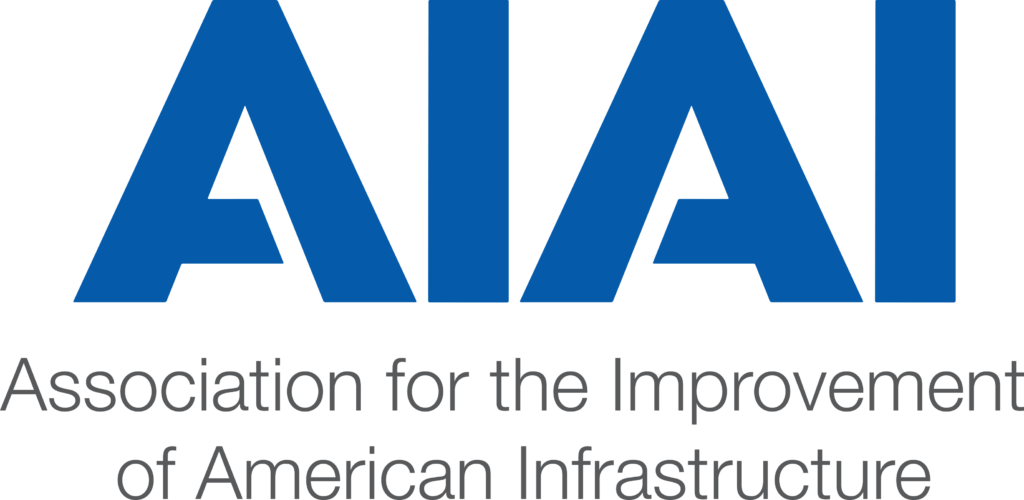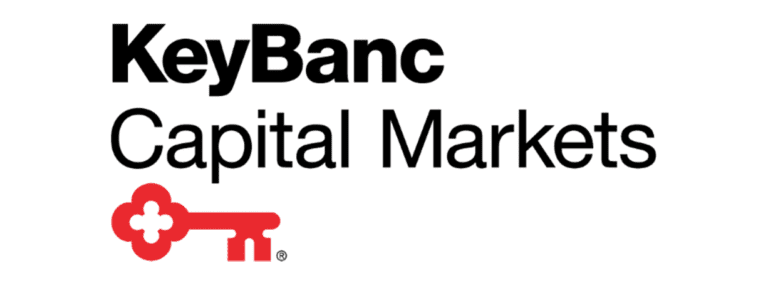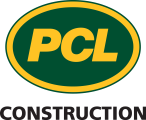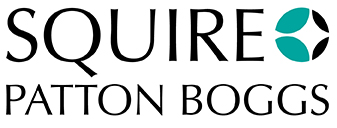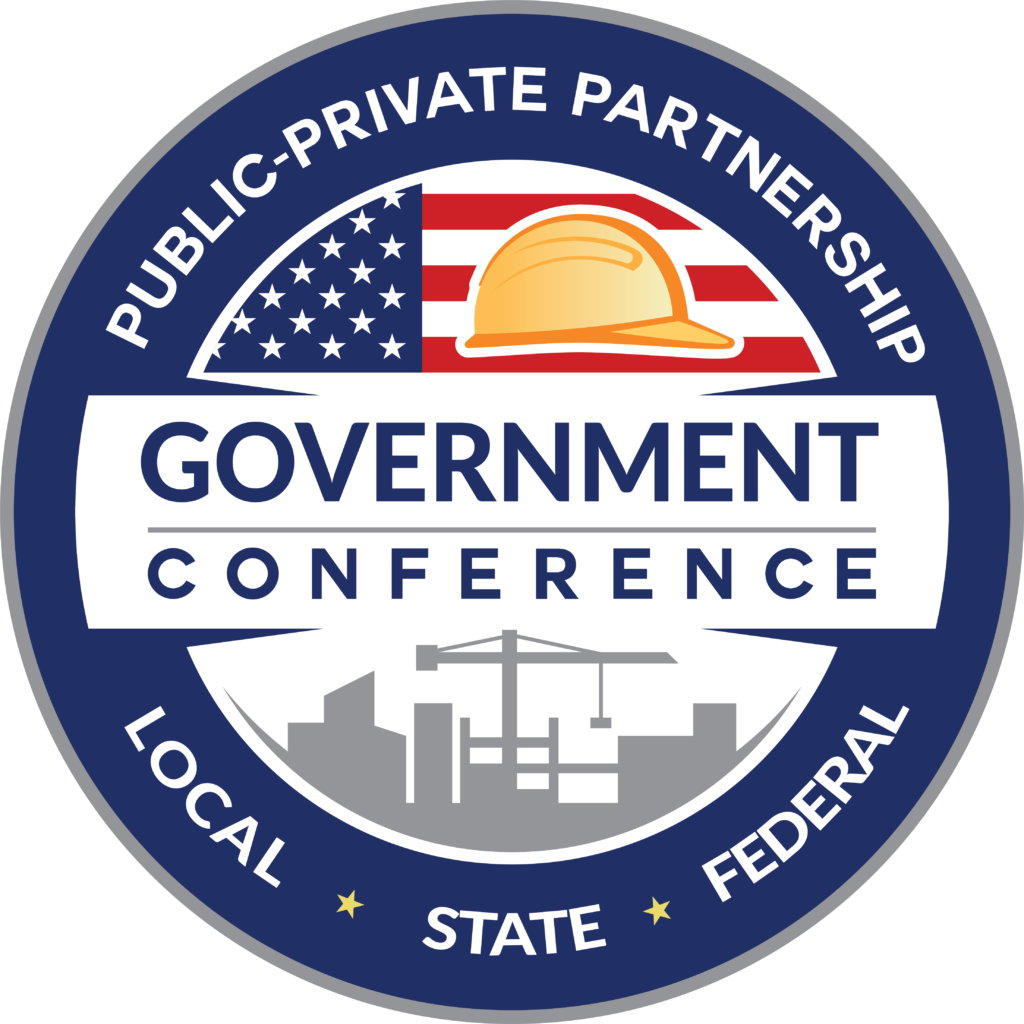
Agenda
2021 Agenda
Tuesday, Dec 07
-
7:00 am — 9:00 am
Check-In & Registration
Regency Ballroom Foyer -
7:30 am — 8:45 am
P3 101 Breakfast Workshop (Open to Public Sector Representatives Only | Advanced Registration Recommended)
Washington BallroomJoin industry leaders and AIAI members for breakfast and an interactive conversation specifically tailored to the needs of agencies that are evaluating P3s. This pre-conference session is designed for those beginning to explore P3s and are seeking to better understand where alternative and accelerated project delivery methods can be applied. Learn about when P3s do and do not make sense, what major considerations need to be made when choosing this route, how you can save money and time when dealing with capital repairs and deferred maintenance, and some of the first steps to make when considering the P3 route.
Please click here to register.
Moderator:Seth Miller Gabriel, Director, P3 Co-Lead, BDOPanelists:Bryan Kendro, National Innovative Program Advisory Leader, RS&HGregory Johnson, Counsel, Squire Patton BoggsJay Brown, Chairman and Managing Director, Hayat BrownJensen Clarke, Director, Head of P3 Business Development, FengateMichael Schneider, Managing Principal, InfraStrategiesSue Lee, CEO, Lesura Strategies -
9:00 am — 9:10 am
Welcome and Opening Remarks
Regency Ballroom EF -
9:10 am — 9:45 am
Opening Conversation: Mondays with Marshall – Different Day, Same Great Conversation!
Regency Ballroom EFEvery Monday, AIAI hosts “Mondays with Marshall”, where Senior Policy Advisor Marshall Macomber shares insight on policy and legislative updates on Zoom. Enjoy a glimpse into this exclusive AIAI member experience as Marshall brings the series live to the main stage. It may not be Monday, but it’s still a great conversation!
Moderator:Marshall Macomber, Senior Policy Advisor, Association for the Improvement of American Infrastructure (AIAI)Panelists:Carol Todd, Director of Communications, Association for the Improvement of American Infrastructure (AIAI)Jeremy Ebie, Founder & CEO, Phoenix Infrastructure GroupSeth Miller Gabriel, Director, P3 Co-Lead, BDOSia Kusha, Senior VP, Group Head Business Development & Partnering, Plenary AmericasThomas John, Partner, Ice Miller LLP -
9:45 am — 10:30 am
Opening Plenary: Building Inclusion from the Ground Up
Regency Ballroom EFIt’s NOT just a numbers game. Justice, Equity, Diversity and Inclusion should all be encompassed by a mindset that is woven into your business strategy and growth plans – whether on the government side or private sector. It is the responsibility of industry to ensure that D&I is more than just a consideration and should be established as an integral part of an organization’s responsibilities through internal procedures, projects and procurement processes. Developing innovative strategies based on the people the projects touch and the community benefits and value added should be a core element of any project scope.
Public-private partnerships offer the opportunity to harness innovation due to their long term contracts, and encourage private investment in public works to benefit local economies, inducing direct and indirect job growth and program opportunities. The addition of diversity & inclusion goals in a P3 contract is vital to the success for communities.
Moderator:Jed Freedlander, Managing Partner & Head of Business Development, Phoenix Infrastructure GroupPanelists:Angela Berry Roberson, Assistant Vice President, Service Area Manager, Water & Energy Alternative Delivery Advisory Services, WSPDeidre Deculus Robert, Executive Counsel, Louisiana DOTJack Callahan, Partner & Construction Industry Practice Leader, CohnReznickJennifer Trotter, Community Relations & DEI Manager, PlenaryMatthew Miller, Co-Chair, P3/Public Infrastructure Practice, Ice Miller LLP -
10:30 am — 11:00 am
Networking Coffee Break - Sponsored by: KeyBanc
Expo Hall -
11:00 am — 12:00 pm
Broadband as a Civil Right
Regency Ballroom EFNow, more than ever, the challenge of connectivity has been brought to the forefront with the need for reliable, high-speed, broadband internet access. The importance of this access has become critical to healthcare, finance, education, and interaction with government services. Broadband access is one of the pressing civil rights issues in infrastructure today, impacting both rural and urban parts of the country alike. How can innovative project delivery models begin to address the digital divide? Join our panelist as the discussed the ways both public and private sector organizations are working together to solve this question of access.
-
11:00 am — 12:00 pm
Why Do a P3? Building The Business Case for A P3 And Selling It to Your Community
Washington BallroomWhat business considerations must a government review before starting the P3 process? The panel will discuss the elements that must be considered as the public builds out the business case for a P3 and share ideas on how to effectively communicate the business case to the community at large.
Moderator:Yaye-Mah Sar, Senior Director, Hayat BrownPanelists:Brian Shell, Assistant Vice President, Service Area Manager, Water & Energy Alternative Delivery Advisory Services, WSPDavid Alvarez, Vice President, Strategic Advisory Practice, CPM North AmericaSeth Miller Gabriel, Director, P3 Co-Lead, BDOWilliam Gorham, Vice President, Business Development and Partnering, Plenary Americas -
11:00 am — 12:00 pm
The Build America Bureau - It's Not ALL About the Money
Potomac Ballroom III-VIThe Build America Bureau administers Federal credits assistance and financing programs, such as TIFIA, RRIF and PABs with the goal of assisting project delivery through innovative financing methods. The Bureau also provides technical assistance to project sponsors and developers who are contemplating alternative delivery methods to deliver their projects.
In this session, the Bureau will discuss available resources and look ahead to potential new technical assistance programs and other requirements that hold the promise of developing good projects in efficient and accountable manner to provide benefits while leveraging private investment with local, state, and Federal resources.
-
12:00 pm — 1:00 pm
Networking Lunch - Sponsored by: PCL Construction
Expo Hall -
12:00 pm — 1:30 pm
P3Direct Bootcamp: Financing (Open to Public Sector Attendees Only | Advanced Registration Required)
Potomac Ballroom I-IIJoin AIAI for an in-depth discussion on financing. One of three P3Direct bootcamps, this conversation will focus on the use of PABS, TIFIA, taxable debt, and other financing tools.
Please click here to register.
-
1:00 pm — 2:00 pm
Afternoon Plenary: The Emerging Growth of Progressive Design-Build Delivery and What it Means for P3 Projects
Regency Ballroom EFThe P3 procurement method offers an innovative approach to delivering solutions to the infrastructure challenges faced by governments across the US. P3 procurement can be undertaken in a variety of ways, offering owners the flexibility to choose their objectives. Progressive P3s are one variation of traditional fixed-price P3 procurements. Panelists will discuss the benefits and challenges of the Preliminary Development Agreement or Progressive P3 structure, and considerations owners should address when looking at project delivery.
Moderator:Steve DeWitt, Senior VP, Business Development, ACS InfrastructurePanelists:Bryan Kendro, National Innovative Program Advisory Leader, RS&HRodney Moss, Senior Vice President, Hunt/AmberShant Boyajian, Partner, Nossaman LLPStephen McDonald, Project Development Director, TransurbanThomas Mulvihill, Managing Director, Head of Infrastructure & P3, KeyBanc Capital Markets -
2:00 pm — 3:00 pm
Federal and State Diversity Leaders Panel: Requirements, Best Practices and Effective Strategies for Contract Equity on P3 Alternative Procurement Projects
Regency Ballroom EFThis panel is comprised of federal and state diversity leaders. Hear directly from the national leaders of the federal DBE Program and Supportive Services initiatives who will provide guidance about the DBE Program requirements as well as Best Practices and Effective Strategies on large complex Alternative Delivery Procurement projects. The panel will also include a State DOT Civil Rights Leader who will speak to the challenges, lessons-learned and success stories associated with implementing DBE/Diversity contracting policies and procedures for meaningful actual results to increase diverse businesses and workforce on federal projects.
Moderator:Angela Berry Roberson, Assistant Vice President, Service Area Manager, Water & Energy Alternative Delivery Advisory Services, WSPPanelists:Christine Thorkildsen, DBE and Contractor Compliance Program Analyst, FHWA Headquarters Office of Civil RightsMartha Kenley, National DBE Program Manager, FHWA Headquarters Office of Civil RightsSandra Norman, Civil Rights Division Administrator, Virginia Department of TransportationShelby Scales, Director, Office of Small and Disadvantaged Business Utilization, U.S. Department of Transportation -
2:00 pm — 3:00 pm
Case Study: Howard County Circuit Courthouse – Is the P3 Working as Intended?
Potomac Ballroom III-VIAfter having been successfully delivered on time in July 2021 despite the many construction challenges presented by Covid-19, the award-winning Howard County Circuit Courthouse P3 is now in its sixth month of operations. Hear from both the owner (Howard County, Maryland) and the developer (Edgemoor-Star America Judicial Partners) as to how the project is going and how the P3 structure aided the on-time delivery of the project and continues to impact early operations of the new courthouse.
Moderator:Brian Dugan, CEO, Edgemoor-Star America Judicial PartnersPanelists:Donald Gibson, VP of Development, Edgemoor-Star America Judicial PartnersJennifer Keiser, Court Administrator, Circuit Court, Howard County, MarylandLonnie Robbins, Chief Administrative Officer, Howard County, Maryland -
2:00 pm — 3:00 pm
Federal Infrastructure Legislation: Opportunities from the Owner’s Perspective
Washington BallroomThe Infrastructure Investment and Jobs Act is a landmark infrastructure bill that will reshape U.S. infrastructure for decades to come. Hear from owners as they share their perspectives about what this law means for their communities, the opportunities it provides, and what needs are likely to persist.
-
3:00 pm — 3:30 pm
Networking Coffee Break - Sponsored by: Gilbane
Expo Hall -
3:30 pm — 4:30 pm
ESG Unveiled
Regency Ballroom EFWhat does ESG mean to industry stakeholders? Join members from AIAI’s ESG working group and industry representatives as they set out to understand the views of the various stakeholders on the meaning of ESG and the impact on infrastructure and the communities these assets serve.
-
3:30 pm — 4:30 pm
How Do I Keep a P3? Monitoring and Partnership for the Long Term
Washington BallroomThe real work of a public-private partnership lies in the O&M phase – when the public sector must step into the monitoring role, the true test of the partnership begins.
-
3:30 pm — 4:30 pm
Community Based Infrastructure and the Impact of P3s
Potomac Ballroom III-VIWith an increasing population and aging infrastructure, Public Private Partnerships are an important tool available owners who are looking to complete projects in their communities. The ability to use private financing to leverage available funding and opt for long-term operations and maintenance contracts can be beneficial to municipal owners working with budgetary constraints. In this panel we will talk to owners and get their perspective on Public-Private Partnerships and how they are looking at them to develop projects and upgrade infrastructure in their own cities.
-
4:30 pm — 5:30 pm
Now Everyone Has a Role in Infrastructure: How New Participants Can Get into the P3 Game
Washington BallroomIn light of the recent passage of the “hard” infrastructure bill, and with public-private partnerships identified throughout, there stands to be much tied into understanding how this delivery model will leverage these new authorities across several infrastructure spaces and policy objectives. This panel reprises and retools a prior offering, cutting to the chase on how contractors – construction, operator, maintainer, or specialty subs – can approach P3s with a more fulsome understanding of what to expect, how it will work, and what not to do. The panel assembles the developer/financier perspective, the financial/financing advisory angle, the public sector, technical participant, and legal perspectives for a shoot-straight, plainspoken statement of the foregoing and generally on roles, expectations, conventions, and risks. Contractor participation in P3 is not only about risk estimation and low price, but other measures of value, from the several participants’ perspectives.
Moderator:John Smolen, Partner, Ballard SpahrPanelists:Jon Godsmark, Senior Managing Director, Ernst & Young Infrastructure Advisors, LLCMark Jennings, Executive Vice President, Balfour Beatty InvestmentsTim Matthews, Assistant P3 Division Director/Pre-let Administrator, Georgia DOTZoe Markwick, Principal, Square Peg Infrastructure -
4:30 pm — 5:30 pm
Fargo Diversion Channel: A Road Map to Climate Resilient P3 Projects
Regency Ballroom EFThe historic Public-Private Partnership infrastructure project represents the first US Army Corps of Engineers use of the P3 model and the first climate resiliency P3 transaction in the United States of America. Project participants will discuss details of the project as well as the general development and bidding process from both a public and private sector perspective.
Moderator:William Marino, CEO, Star America Infrastructure PartnersPanelists:Amrinder Saini, Director, Agentis CapitalJoel Paulsen, Executive Director, Metro Flood Diversion AuthorityJohn Shockley, Attorney, Ohnstad Twichell AttorneysSam Headon, Managing Director of Business Development, Shikun Binui -
5:30 pm — 7:00 pm
Networking Reception - Sponsored by: Squire Patton Boggs
Expo HallAn evening reception before you head out for dinner. Please join us for this special networking event for all attendees.
Wednesday, Dec 08
-
7:30 am — 8:30 am
Conference Networking Breakfast - Sponsored by: Johnson Controls
Expo Hall -
7:30 am — 9:00 am
P3Direct Bootcamp: Risk Allocation (Open to Public Sector Attendees Only | Advanced Registration Required )
Potomac Ballroom I-IIJoin us for Boot Camp 2 as we address how risk transfer can deliver value, the types of risk, and the best practices for allocation and mitigation to ensure project success.
Please click here to register.
-
8:30 am — 9:00 am
Opening Conversation: Fireside Chat with Dr. Morteza Farajian
Regency Ballroom EFThe Build America Bureau Executive Director will share the work that is being done and the opportunities that exist at the state and local level. Learn how the Bureau is stimulating the innovative delivery and financing markets for infrastructure nationwide. Dr. Farajian will also discuss plans for the organization, with specific attention to diversification of loan programs, ways to provide technical assistance to emerging markets and elements of the infrastructure bill that can positively impact the growth of the P3 market and opportunities for alternative delivery.
-
9:00 am — 10:00 am
Opening Plenary: Ready, Set…Build? How 2022 Could Lead a Decade of Infrastructure & P3 Growth
Regency Ballroom EFAfter years of debate and deliberation, Congress stands ready to act on a trillion-dollar infrastructure package. With several proposed new pro-P3 incentives in the bill, the US P3 market is ready for growth and diversification if Congress will finally act. Join AIAI members for a discussion on how the infrastructure bill could incentivize P3s and which agencies could benefit most.
Moderator:Marshall Macomber, Senior Policy Advisor, Association for the Improvement of American Infrastructure (AIAI)Panelists:Bill Shuster, Former Chair of the House Transportation and Infrastructure Committee, Senior Policy Advisor, Squire Patton BoggsJim Ray, Corporate President, HNTBRodney Slater, Former Secretary of Transportation, U.S. Department of Transportation/Partner, Squire Patton BoggsSia Kusha, Senior VP, Group Head Business Development & Partnering, Plenary Americas -
10:00 am — 10:30 am
Networking Coffee Break - Sponsored by: Nossaman
Expo Hall -
10:30 am — 11:30 am
Building S4: Safe, Secure, Sustainable K-12 Schools
Regency Ballroom EFAs our schools and communities continue to face an ever-growing number of natural and human-made threats, it is essential to recognize that comprehensive school safety goes far beyond just physical security. Creating a safe, secure, and sustainable learning environment – a physical space – to support and educate our children and youth has become the focus of many communities around the country. Join the team from Prince Georges County Maryland as they share their vision for their school district and their innovative approach to providing Safe, Secure, and Sustainable Schools.
Moderator:Seth Miller Gabriel, Director, P3 Co-Lead, BDOPanelists:Brandey McDonald, Project Director, Infrastructure Asset Management, FengateJason Washington, Director, Office of Alternative Infrastructure Planning and Development, Prince George’s County Public SchoolsMichael Crase, Vice President, Public-Private Partnerships, GilbaneShawn Matlock, Director, Capital Programs, Prince George’s County Public Schools -
10:30 am — 11:30 am
How do I Deliver a Project with the P3 Model? Best Practices for a Successful Procurement Process
Washington BallroomThe panel will discuss the key issues that public agencies must consider when conducting a project procurement – structuring the agreement, conducting a fair and competitive procurement process, and negotiating a final agreement that is transparent and protects the public interest.
Moderator:Tad Guleserian, Managing Director, CRC CompaniesPanelists:Gillian Schloss, Assistant Vice President, Project Delivery, PlenaryRoderick Devlin, Partner, Nixon PeabodySue Lee, CEO, Lesura StrategiesSuhrita Sen, Founder and Principal, Infrastructure Advisors LLCSuyash S. Raiborde, Associate, Kaplan Kirsch -
10:30 am — 11:30 am
Creatively Delivering Transit-Oriented Developments Using P3
Potomac Ballroom III-VITransit-oriented development (TOD) has the potential to transform and reshape communities and is a natural candidate for P3 financing and delivery, given the emphasis on public transportation facilities that are surrounded by private development. TOD projects require alignment among many regulatory stakeholders, demand careful planning and design, and involve a complex set of funding streams and financing methods. In this session, panelists will share insights and ideas about delivering successful TOD projects from varied perspectives, such as institutional landowners near transit, owners and operators of transit, and experts that advise on these projects.
Moderator:Affan Sheikh, Manager, Hayat BrownPanelists:Jay Brown, Chairman and Managing Director, Hayat BrownNzinga Bryant, Director, Alternative Delivery Advisory Services, WSPSteven Sergerlin, Program Manager - Real Estate and Station Area Planning, Washington Metropolitan Area Transit AuthorityWyatt Shields, City Manager, The City of Falls Church, VA -
11:30 am — 12:30 pm
Risk: The Impact of Inequitable Risk Allocation Practices and the Opportunity to Do Better
Regency Ballroom EFCertain market challenges associated with risk transfer can only be resolved though the mitigation of key commercial terms in order to address the growing concerns around the inequity of risk transfer which affects long term project success and value driven procurement. Join panelists as they discuss the ongoing effort of AIAI’s Risk Working Group to address the inefficiencies around risk transfer, and their work to build a consensus on terms and core risk allocation principles as they set out to proactively address a growing concern.
-
11:30 am — 12:30 pm
Pandemic Considerations for P3 Express Lanes
Washington BallroomThis session will examine the impact of the pandemic on express lane P3s. Has traffic recovered to pre-pandemic levels? How will this affect existing demand risk P3s? What about projects under construction? Will increased commercial vehicle traffic make up the difference? This panel will explore these questions and examine how project sponsors, lenders and developers are viewing demand risk in light of recent events.
Moderator:Brian Oakley, Executive Vice President, Energy and Infrastructure Lead - Public Institutions, JLLPanelists:Amanda Baxter, Vice President for Operations, North America, TransurbanDaniel Papiernik, Assistant Vice President, Toll Practice, HNTBScott Monroe, Sr. Director and Team Head of National Infrastructure, Fitch RatingsThomas Augustin, Financial Policy Advisor, U.S. Department of Transportation, Build America Bureau -
11:30 am — 12:30 pm
Resiliency and Infrastructure – How Will We Meet the Needs of the 21st Century?
Potomac Ballroom III-VIClimate change, aging assets, and biological and cyber threats have led to an increased focus on building more resilient infrastructure and systems that will reduce our environmental impacts and increase our ability to adapt to rapidly changing environmental and social conditions. This panel will discuss resilience from a number of perspectives from how national governments are incorporating resiliency considerations into their P3s to efforts to reduce carbon emissions and increase flexibility of transit systems, to adapting our water and wastewater systems to address both increasing amounts of storm water, and increasing demand for clean drinking water.
-
12:00 pm — 1:30 pm
P3Direct Bootcamp: Operations & Maintenance (Open to Public Sector Attendees Only | Advanced Registration Required)
Potomac Ballroom I-IIJoin us for Bootcamp 3 as we consider the benefits of long-term operations and maintenance using the P3 structure to mitigate project risks. During this interactive session, you will learn how P3 counterparties allocate and price risk, and how to approach operations and maintenance early on to drive value and appropriately address the asset’s long-term goals.
Please click here to register.
-
12:30 pm — 1:30 pm
Networking Lunch - Sponsored by: HNTB
Expo Hall -
1:30 pm — 2:30 pm
P3 in a (Post?) Pandemic World
Washington BallroomPanelists from the US and Europe address real-world and real-time impact to international projects in the COVID and post COVID world. They will discuss how both the public sector and the private sector are thinking about the long-term impact to P3, as it relates to designing, financing, and executing projects around the world. This is an interactive discussion, so the audience is invited and expected to join in with questions.
-
1:30 pm — 2:30 pm
Risk Management to Prevent and Resolve Disputes on P3 Projects Using Dispute Boards
Potomac Ballroom III-VIThis panel will present best practices for developing and implementing Disputes Boards for P3 Projects. Disputes and claims have been a part of construction projects for many years and oftentimes drag out well after completion of the project, tying up valuable resources and adding costs. Actively managing the dispute or claim or, even better yet, helping avoid the claim or dispute entirely, saves time and money for all parties involved. This workshop discusses how Dispute Review Boards (DRBs) have been used by P3 Projects to reduce and eliminate disputes. By having a DRB start at the beginning of the construction of a project, the DRB can help involved parties avoid disputes by being proactive with the parties in getting issues and disputes resolved while the project is on-going, so at the end of the project there are no remaining disputes.
-
2:30 pm — 3:30 pm
P3 Policy and Implementation Questions and Answers Discussion Session – What Are the Next Steps? Where to Go from Here?
Regency Ballroom EFJoin industry leaders and AIAI members for an interactive conversation specifically tailored to audience questions and answers about P3s. Attendees will have the opportunity to submit questions in advance and also join in the discussion of the benefits, values, and applications of P3s in an open dialogue.
Moderator:Steve DeWitt, Senior VP, Business Development, ACS InfrastructurePanelists:Amol Naik, Principal, Squire Patton BoggsJarrod Loadholt, Partner, Ice Miller LLPJeremy Ebie, Founder & CEO, Phoenix Infrastructure GroupMartin Klepper, Chairman, US Infrastructure, FengateMatthew Neuringer, Partner, Orrick, Herrington & Sutcliffe LLP

